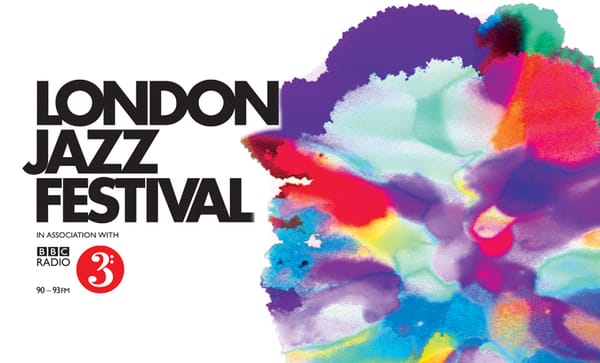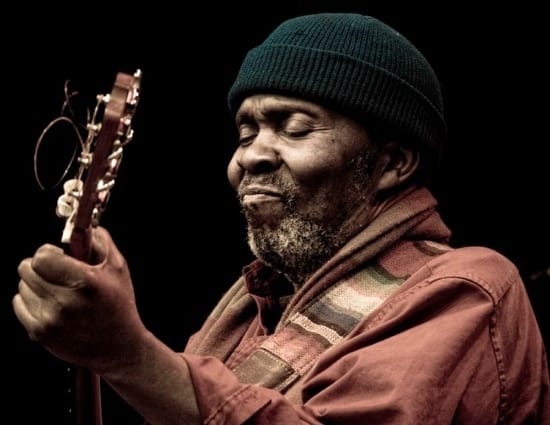You Don't Have To Call It Music #6
Pt. 6 punk
or: I ain't thick, it's just a trick.
Music has often been trimmed with philosophical considerations, or in the case of rock & roll or funk, sexual liberation. However, these ideologies more often than not play second fiddle to the tunes themselves. One could just as easily accept or dismiss them, refusing to opine on their behalf. However, in the years leading to the end of the Vietnam War and the coming to power of Margaret Thatcher’s Conservative Party in the UK, it was clear that withholding one’s opinion was no longer a viable option. Set to a backdrop of unemployment, union strikes and severe social inequalities, it may seem obvious in hindsight that some form of personal revolution had been brooding in the hearts of the disenchanted youth.
Faced with the insulting anaesthetic pop of the time, the rampant commercialization of popular culture and a critical mass of the populace consigned to the gloomy working class, the youth had had enough. Social tension had grown to bursting point and the zit that popped was punk rock.
Behind the success of bands like the Ramones and the Sex Pistols, a fervent underground scene had formed on either side of the Atlantic. Inspired by a simplistic songwriting approach, all of a sudden anyone could form a band. All it took was a will to do something for oneself instead of blindly accepting the morass of popular culture. The DIY ethic not only inspired kids to start their own bands but also found labels, publish ‘zines and establish distribution networks through which to promote their music.
In 1977, the year the Pistols gave England Never Mind the Bollocks, a band called Discharge recorded their first demo and another group formed under the name of Crass. Perhaps the two most influential groups of the underground, each unknowingly founded a subgenre to their name, based on the impact of their music and delivery – d-beat and anarcho punk were the result.
D-beat, characterized by a percussive assault reminiscent of Motörhead, spread through the globe as far as Scandinavia, Japan and South America. The rhythm is a sort of huffing and puffing sledgehammer assault, catchy and explosive, proving hard to resist – a perfect vessel for jubilant uproar. A slew of bands grew which begun prefixing their names with Dis-, creating a distinctive sound somewhere between pogo-punk and head-on hardcore. Sweden in particular offers perhaps one of the most explosive scenes with bands like Anti-Cimex and Totalitär releasing brutal, antagonizing EPs like Victims of a Bombraid and Multinationalla Mördare, respectively. In Finland, Terveet Kädet’s Ääretön Joulu is an astonishingly fiery account of an otherwise cold and restrained land, the lightning speed of the drums inducing a sort of wailing psychosis in the vocalist, or vice-versa. Japan's d-beaters were marked by a tendency towards metal, the fusion earning the tag 'crust'. The assault that ensued is evident in the recordings of bands like Crow and 白 (Kuro).
A year after their formation, Crass released The Feeding of the 5000, founding anarcho-punk in the process. Songs such as “Do They Owe Us A Living?” were charged with sociopolitical interrogation, conscientious responsibility for matters such as gender equality or animal rights, and promoting environmental awareness. Far more interested in ideological progress than musical merit, the records served as a platform for enlightenment. Their logo is an interesting amalgam of various icons of power, entangling a Union Jack, a Swastika, an Ouroboros and a Christian cross. Their visual approach was also prominent in their live shows, where banners read slogans like “There Is No Authority But Yourself”, which were also stencilled around the London Underground.
In North America, bands like Black Flag built their reputation in part as a by-product of their survival instinct, touring incessantly to put food on the table and beer in the belly. Through their homegrown SST label, the band and others in their entourage fostered a community of musicians, fans and facilitators among which they shared floors to sleep on while touring and through which they exchanged fake credit card numbers for calling credit they required for booking gigs.
Unfortunarely, the plague of prohibition meant many of the kids most active in the scene couldn't get into gigs due to the 18+ age limit. Minor Threat (later forming Fugazi) spearheaded the straight-edge movement against the drink and drugs which were keeping their fans out of the shows. Empowered with a sense of sobriety and brandishing X's drawn on their hands with permanent marker, the bands started to take a stand not only against substance abuse but also empty-mindedness, macho chauvisim and other forms of yobbery that were infecting the underground. SS Decontrol's song titles got straight of the point, shouting "Get It Away!" and "Forced down your throat – giving in to the peer pressure".
Another example of the everyone-does-everything anti-hierarchy of the punk community is the Armageddon Shop, founded in Providence, Rhode Island, by members of Dropdead, and now one of the most reliable international suppliers for the underground scene. The band plays punk of the unfortunately named, but somehow apt, 'powerviolence' persuasion. They shared a 5” (that’s two inches below your standard ‘single’ size; not surprising given that the track lengths average at about 30 seconds) split record with Crossed Out from California. Though Crossed Out survived only from 1990 to 1993, they also managed to record a 7” split with powerviolence heavyweights and supposed founders of the genre, Man Is The Bastard, who perdured until 1997 before dissolving into a number of side projects.
Whereas the closed-knit scene of the late 70s and early 80s relied on word-of-mouth, gigs as social gatherings and direct mail correspondence with the band members, nowadays the international community is facilitated by the internet. Though many still often send cash in envelopes for records, the catalogues are no longer sent by snail mail. Blogs like 7inchpunk, Killed By Death or the Girls from Tahiti are a smashing source of music and information on otherwise out-of-print and impossible to find recordings.
I was personally introduced to hardcore and anarcho-punk by a couple of DIY compilation tapes traded with the drummer of Bordeaux d-beat group Gasmask Terror. Incidentally he also publishes a 'zine called Kängnäve and runs his own Ratbone Records which released a compilation of songs by the polyglot French band Heimat-Los (German for “without a fatherland”). Such sentiments reverberate throughout the global community, as displayed in Berlin’s squat-cum-club Katerholzig, where the words “No Countries, No Borders” are painted high enough to be read from the U-Bahn. Squat houses have long been a gathering point for punks and other anarchists. Despite their sometimes disreputable fortune, some are home to their own libraries or are used as places of gathering where you can learn to do everything from growing your own vegetables to print your own books.
Nepal is perhaps the last place you'd think to look for a punk uprising nowadays, but Rai Ko Ris and friends are doing just that. Albeit at a more grass-roots level, singing about more personal issues like feminism than "mainstream government bollocks". Their scene is a small one, for sure, but along with the 'infoshop' they set up, they are holding dance and music classes for villagers and helping to spread awareness of DIY ideals and alternative ways of life.
The sound of punk was at times seeded with reggae by Jamaicans Bad Brainsfrom DC, funked up by the late Minutemen, or weirded out by Nick Blinko's Rudimentary Peni, but purists still remain. Some hold fast to old ideals of incinerating speed, or continue preaching an anti-capitalist message which may never seem to break out of the underground. Others, like Crass's Penny Rimbaud have taken their thoughts to higher brows, like Dalston's Vortex Jazz Club, where he continues to make apperances with other members of the Crass Collective and collaborate with other artists.
The punk ethos has bled in to many forms of music, art and ways of living. Younger generations transformed the sound to post-punk (last year, Douglas Heaven took Felix readers on a world trip of its exploits in his column, Punk Planet) and no-wave (the NYC scene documented in the film Kill Your Idols), all but abandoning the political focus for more existential concerns. Rest assured, many old punks have set their Docs aside and donned white collars, but certainly something of that feisty spirit remains.
Author's notes...








